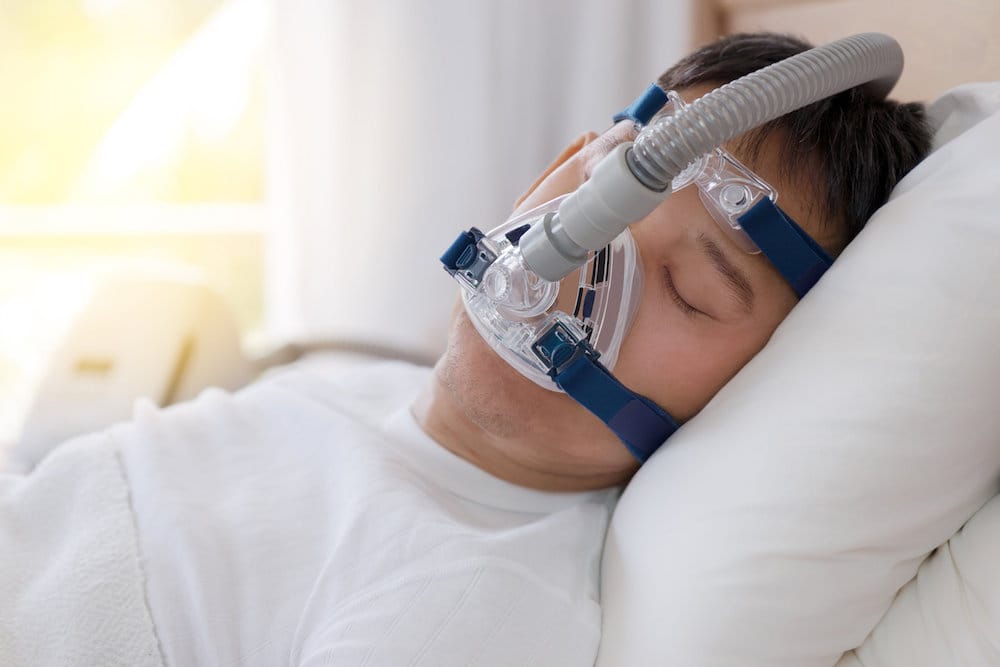If the topic of sleep comes up at your next visit to the dentist, don’t be surprised. Plenty of research shows that poor sleep can have negative effects on your oral and overall health. But how do you know when it’s a sign of a more serious problem like sleep apnea? Your dentist may be the first clinician to spot the symptoms of this sleep and breathing condition during a regular dental checkup.
What is Sleep Apnea?
It’s estimated that one in five adults suffer from sleep apnea. This condition occurs when the upper airway becomes blocked during sleep, causing frequent pauses in breathing. The three main types of sleep apnea are obstructive sleep apnea (OSA), central sleep apnea and complex sleep syndrome.
OSA – accounting for more than 80% of sleep disorder breathing cases – is caused by the throat muscles in the back of the throat collapsing too much to allow for normal breathing. Central sleep apnea is different than OSA, occurring when the brain doesn’t send proper signals to the muscles that control breathing. In patients with complex sleep apnea, a combination of OSA and central sleep apnea, breathing problems persist even after the airway obstruction is addressed and treated.
Most people with sleep apnea experience symptoms such as loud snoring, gasping for air during sleep and excessive tiredness during the day. Certain risk factors like obesity, chronic nasal congestion and enlarged adenoids or tonsils may increase the risk of developing this condition.
Simple lifestyle changes like quitting smoking, exercising regularly, avoiding alcohol and treating allergies are effective ways to help reduce or prevent this sleeping condition.
A variety of treatment options are available for sleep apnea, including oral appliances, continuous positive airway pressure (CPAP) machines, other airway pressure devices and surgery.
The Effects of Sleep Apnea on Oral and Overall Health
According to a Clinical Oral Investigations study, sleep disorders are associated with a weakened immune system and higher levels of gum inflammation, which can lead to an increased risk of gum and heart disease. Sleep apnea accompanied by dry mouth also boosts the risk of tooth decay and gum disease.
Another study found that people who experience OSA are prone to grind their teeth. While it isn’t yet clear how OSA and teeth grinding are related, one theory is that it’s triggered by the muscle movement that occurs in the mouth and jaw when trying to reopen the blocked airway. Frequent grinding can wear down tooth surfaces and cause headaches, jaw disorders and other problems.
Evidence also suggests this constant back-and-forth motion can cause tension and stress on the jaw joints, leading to temporomandibular disorders (TMD). These conditions are characterized by pain and dysfunction in the jaw joint and surrounding muscles, with symptoms like clicking of the jaw joint, difficulty chewing and headaches.
While these oral health problems aren’t a clear indication of a sleeping disorder, considered with other factors, they may point to a sleep apnea diagnosis.
Dentists Can Play a Key Role in Detecting Sleep Apnea
As you would expect, dentists screen for a variety of oral health problems during a dental exam, but they also are trained to watch for symptoms of certain disorders that affect the entire body – not just the mouth. The oral anatomy can present signs of sleep apnea, diabetes, heart disease and other medical conditions that some health care professionals may never see. That’s why dentists are uniquely positioned to be the first clinicians to detect systemic diseases and communicate these findings to patients.
If you are experiencing any sleep issues, talk to your dentist. Your dentist can refer you to a physician for further evaluation and diagnosis. Knowing the signs and symptoms of sleep apnea, potential risk factors, ensuing health conditions and treatment options can go a long way in helping you take control of your health. Just as you prioritize brushing and flossing for the health of your mouth, it’s vital to treat any sleep disorders to maximize the health of your whole body.

Edward Shellard, DMD
Edward Shellard, DMD, is the chairman, CEO and president of United Concordia Dental, a national dental solutions subsidiary of Highmark Inc., headquartered in Camp Hill, Pa. With more than 30 years of experience, including seven as a practicing dentist, he has extensive knowledge and expertise in all facets of the dental industry.







